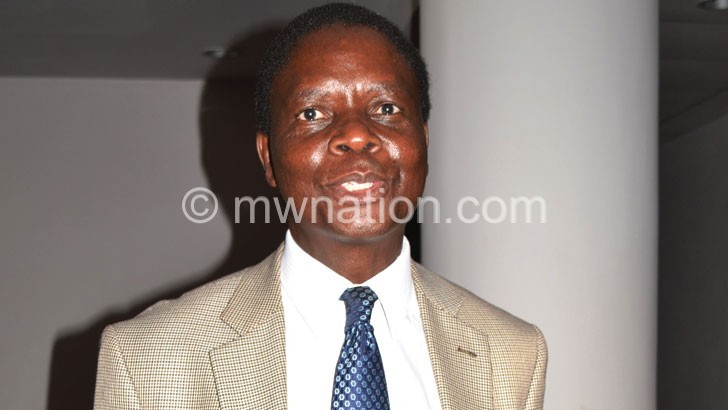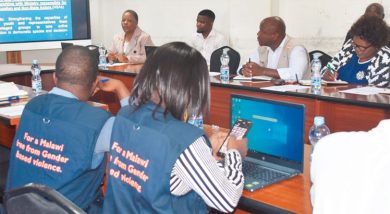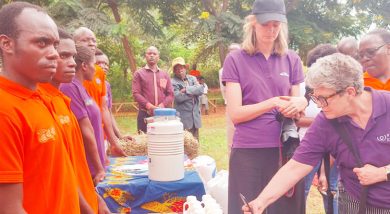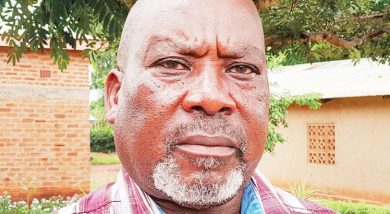Opposition queries budget
Opposition Malawi Congress Party (MCP) and People’s Party (PP) plan to take the government to task over its failure to implement the National Action Plan on Persons with Albinism and overexpenditure in some government departments, including State Residences while others were underfunded.
Parliament starts meeting tomorrow for the Mid-year Budget Review Meeting where Minister of Finance, Economic Planning and Development Goodall Gondwe will make his statement on Friday, March 8, amid indications that the K1.3 trillion budget for 2018/19 fiscal year will be revised downwards after the World Bank did not disburse budgetary support.

Apart from the budget cut, Gondwe will also be tasked to explain how some ministries, departments and agencies (MDAs) spent close to 80 percent of their allocated budgets before the end of the first half, among them State Residences, Malawi Defence Force and Malawi Police Service.
PP leader in the House Ralph Mhone said in an interview yesterday that the minister of Finance will have to explain to the House where he plans to get funding to allocate to the MDAs that have overspent.
On attacks on people with albinism, Mhone said PP will be interested to know progress on the National Action Plan which the minister of Homeland Security (then Home Affairs and Internal Security) presented to Parliament about two years ago but is yet to be funded and implemented.
“The Executive came up with an action plan and we as Parliament expected that they were implementing it, but it appears they were sitting on the laurels and the plan was gathering dust. Parliament passed a motion and they have flouted it,” he said.
Amnesty International estimates that about 25 people with albinism (PWA) in the country have been killed since November 2014 and 168 of them have been attacked.
Association of Persons with Albinism in Malawi (Apam) has planned vigils from March 6 to demand funding for the action plan.
In an attempt to stall the vigils, President Peter Mutharika met with a splinter group of PWA called Poor and Concerned People with Albinism (Pacpwa) where he pledged funding for the action plan, and the construction of safe housing for PWA, among other things.
Apart from demanding a report on how the government is ensuring the rights of PWA are protected, PP wants to ensure that legislation on industrial hemp is brought to Parliament to enable investors get started.
Preliminary results of the industrial hemp trials show that it is a feasible crop in some parts of the country.
Newly-elected MCP whip Jacob Hara said while the party’s caucus has not been convened due to the long Martyrs Day weekend, at the top of the agenda would be the expenditure of the 2018/19 Budget, in particular the overexpenditure on votes of certain MDAs as well as attacks on people with albinism.
Hara faulted government’s lack of political will to resolve the crisis, making MCP to wonder if they have interests that they are bent on protecting.
“We want the government to come out clearly that it has no vested interest in what is happening. The government has the machinery to curb what is happening. It is possible to stop this but there is no political will. We want to know what is their interest?” he said.
On the budget and over-expenditure in some votes, MCP suspects that the government did not plan for the Mid-year Budget Review Meeting and thought such an anomaly would not be noted.
In an interview on Wednesday, Leader of House Kondwani Nankhumwa disclosed that the Business Committee resolved that the Minister of Finance, Economic Planning and Development present a budget statement on Friday March 8 to be followed by responses from the opposition and general debate on Monday and Tuesday the following week.
It is anticipated that the budget could be cut by as much as K32 billion from the recurrent expenditure and about K28 billion from the development budget to make up for the K60 billion that the World Bank has not disbursed but was factored into the budget.
The planned budget cuts will be the third in as many years following non-disbursement of expected budgetary support.
Nankhumwa said the programme for the budget meeting would remain traditional with Tuesday and Thursday mornings catering for questions to ministers for oral replies and Wednesdays for committee reports.
“So far, I only know of one ministerial statement to be delivered by the Minister of Agriculture, Irrigation and Water Development on the 2018/19 crop estimates, I might know of others by Monday which will be incorporated into the Order Paper,” he said.
The two-week meeting is so short that the government has not provided for new bills except to continue with old ones which include the National Remuneration Commission Bill to establish a commission that would be mandated to receive and determine remuneration proposals from a public body and also advise the government determination of the equivalences of grades and scales.
Once passed, the Bill–which has been appearing on the Order Paper since 2017–would also change how perks at rights bodies Human Rights Commission, Law Commission and the Ombudsman would be determined and these have separate bills.
After further consultations on the Private Members Bill, the Financial Services (Amendment) Bill, commonly known as Interest Capping Bill, is due to return to the floor with a committee report.
During consultations, the Bill received a lukewarm response from microfinance institutions, including savings cooperatives.





